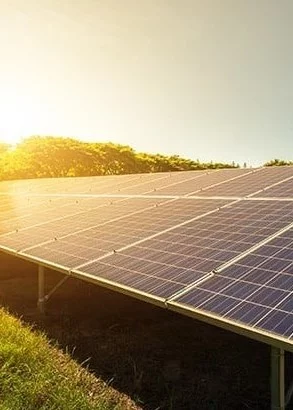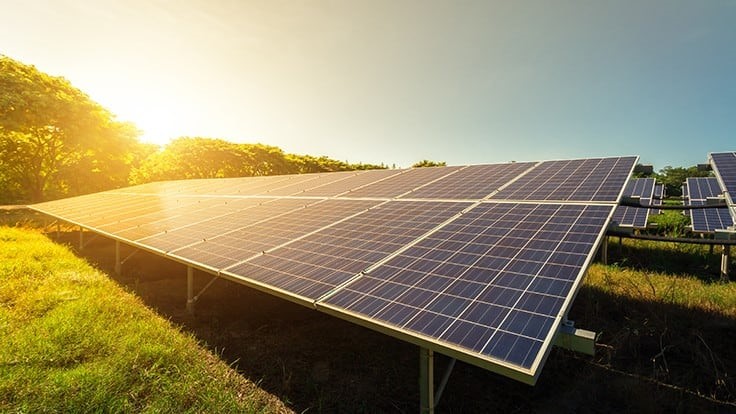

Going solar is a great option for so many people, and millions have taken advantage of the way that it helps their homes and wallets.
Blue Raven Solar is so excited about the amount of people that are making the switch to solar and the way they are all helping the earth with clean, renewable energy and energy independence!
There are benefits around every corner, including helping to save the planet and, of course, saving you money.
Frequently Asked Questions When Going Solar
When you go solar, however, you might have questions. There might be words you do not know and lots of technological happenings that you might not understand.
That is perfectly okay!
We do not expect the average person to understand all the unique jargon of solar systems, but we do want to help you understand every part of the process and any part of the system that you have questions about.
Lots of questions are very simple to answer, and you can ask them quickly and get a response in just a few minutes here!
Something we get questions about often is what it means to be on the grid or off the grid with your solar system.
If you are looking for answers and information about the details of what it means to have an on-grid system vs an off-grid system, you have come to the right place.
Blue Raven Solar works on the grid, and we will go into the reasons why as you read on. We will talk about what they mean, the costs and benefits of each, and why Blue Raven Solar goes the direction we go in order to give you the best system and service that we can.
On Grid Solar Systems
Solar energy that is on the grid simply means that the system is connected to the energy grid that goes through the jurisdiction that you live in.
The power is sent to your home and through a two-way meter so that you can get power from the grid and send power to the grid. We’ll go into why this is good for you in a bit.
When the power is out in your area due to storms or fallen trees, your on-grid solar energy will also go out because the utility company will shut off your meter. This will stop power from flowing from your solar system to the grid and into power lines.
If power lines need repairing, they cannot have live electricity flowing through them because that would put the repairmen in extremely dangerous situations. So, to prevent unnecessarily hazardous situations, your power would be unavailable for the time needed to fix the grid’s power.
You may be asking yourself why solar is worth it, then, if you can’t even avoid power outages on the grid? It’s a valid question.
Bad weather is not supposed to impact your solar panel power production, so why would you want to invest in something that will not even spare you from power outages?
This is the concern of many future solar owners. Having your panels while on the grid might seem like a waste from an emergency planning standpoint.
However, just like everything else within the solar industry, this would not be an option if it did not have some great and applicable benefits, so we are going to talk about why on-grid is worth not only your time and consideration, but also your investment.
Being on the grid gives you a grace period, per se. While yes, your panels would be creating lots of energy and your home’s first source would be your system, there are situations when you use more power than your panels can account for.
At times like this, perhaps when it is 105 degrees outside with 100% humidity and you have the air conditioner blasting but the sun is hiding behind clouds, your home will pull energy from the grid to make up for the power that your panels are unable to provide.
Though your panels are using energy from direct and indirect sunlight, they need the best sunlight they can get if you’re using tons of electricity all at once. Being on the grid is a safe way to never be left powerless, just in case.
In the opposite situation, where you have a day with perfect weather and it is super sunny, your panels will be producing large amounts of energy and you may not be using it all.
This excess energy can help power other homes and businesses on the grid, bringing more clean energy to the world and using less nonrenewable energy in your grid.
Wait a minute—doesn’t that mean you are spending your money on someone else’s energy? Not necessarily! If you are in an area where there is net metering (most states mandate it), you will receive a monetary credit for the extra energy you provided for others.
So, that is just another way you keep money in your pocket and potentially get even more!
Check out your location’s details here.
Off Grid Solar Systems
Solar systems that are not connected to the grid are completely on their own. They are not connected to the same sources that power lines are connected to and can be a great option for people that live remotely and are not connected to power lines, or those with unique needs like solar for an RV, cabin, or boat.
Being off the grid with your solar system would mean you only get the energy that your panels can produce and perhaps what you can store in batteries, so those that have these unique needs would need to know exactly how much power they need per day.
There are several calculators online to find out the amount of electricity you use and how much you could hypothetically need and store. If you run out, however, you run out!
There is not a power grid to fall back on to give you electricity if you need it. So, nighttime could leave you completely powerless and without air conditioning, light, or any other electrical needs.
An upside of an off-grid solar system is that you will not get a utility bill anymore! Being connected to the grid has a fee no matter how much power you use from it, even if you do not use any.
So, if you are not on the grid, you avoid that fee, therefore avoiding an electricity bill altogether. Again, for boats, cabins, or RVs, this is an awesome option for your power supply because you are not connected to an energy grid anyway. Another upside is that you are completely energetically independent.
However, the batteries that you can store the power in can be expensive, and to be off grid, you have to have something called a charge controller.
This works between the panels and the battery, and it protects the battery life by doing a few things. It limits the amount and rate of charge, stops the batteries from draining the power back to the panels at night, and when the battery is almost fully drained, the controller will cut off the power to your appliances until you can recharge, preventing over draining.
Over draining can cause damage to the battery, so the controller plays an important role by stopping the drain before it’s too late. With the battery, you will also not receive the same tax credit as someone with an on-grid solar system, because you will not be providing energy within the community power grid.
Hybrid Solar Systems
There is a way to have a bit of both, but it comes at a higher price.
To have a hybrid solar system would mean that you are still connected to the grid to get power if you need it, but when you have excess from your panels, some of the power goes into a battery pack, which you can use if power goes out on the grid.
Once your batteries are charged, the power continues to be produced, and it goes into the grid, like the excess power from on-grid systems. The battery pack can be charged by the panels or by the grid, so you can always have a full battery.
You may need multiple batteries to hold enough power for a hybrid system to be viable, and that is where it can be more expensive: batteries can be around $12,000 for a battery with 13.5kWh of capacity.
For comparison, a home usually uses about 30kWh of electricity per day. Therefore, you would need multiple batteries if you were wanting to be able to power your home for a long period of time.
The batteries also only come with a 10-year warranty, and you will likely need to replace them at least once during the lifetime of your panels. That money can add up to be quite a lot up front and over the years.
So, you will be paying the fee to be on the grid, whether you use that power or not, and you will have to pay for the batteries that can cost tens of thousands of dollars.
So, this might be the most expensive option, but it provides you the ability to go off the grid and the ability to get credits for energy you send to other places via net metering.
Having a hybrid system with a battery can also affect your tax credit depending on how much energy you are putting into the battery versus the grid. The benefits need to outweigh the costs for your personal needs and your preferences, and maybe hybrid can do that for you!
The Blue Raven Solar Promise
Blue Raven Solar installs all our solar systems on the grid because it is the most energy efficient and cost efficient for homeowners.
While connected to the grid, you are mostly energy independent and provide most of your energy on your own, but you have a backup source in case of any emergencies. Additionally, off-grid systems are more expensive up front than on-grid systems, because of the battery costs, and they are not a practical need for residential areas.
We know each system and the way it works for specific needs and situations, and we are confident that on the grid solar systems are the best way to go for you and your home.
Find out more information about what kinds of systems we use here.
We promise to give you the best possible service and product that we can, and that includes advising you to do what is best for you.



Sorry, the comment form is closed at this time.